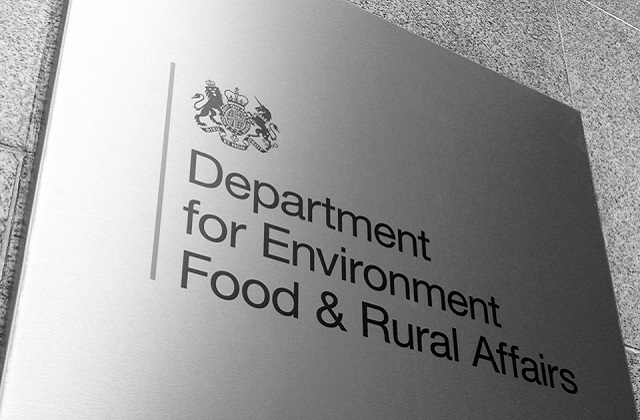The publication of the Common User Charge rates
Written by Defra Press Office

There has been widespread reporting following the government’s publication yesterday of the Common User Charge rates and guidance, which will be brought in alongside new risk-based sanitary and phytosanitary (SPS) controls from 30 April as part of the nation’s new border system, known as the Border Target Operating Model (BTOM). This follows a government consultation held last year on charging arrangements at Border Control Posts.
The Common User Charge will be in place for imports on low-risk products of animal origin (POAO), medium and high-risk animal products, plants and plant products entering GB through the Port of Dover or Eurotunnel Le Shuttle which are eligible for checks at a government-run Border Control Post.
The charge will apply to all eligible imports regardless of whether the import is selected for a physical check at planned government-run BCP facilities.
As a global trading nation, diseases carried from imported animals, animal products, plants and plant products pose a serious risk to the UK’s biosecurity. Risk-based border controls are therefore essential to manage this and ensure that we only import safe, high-quality products.
Therefore, charges on eligible imports coming into GB are necessary to fund the operation of planned government-run Border Control Post (BCP) facilities serving Port of Dover and Eurotunnel Le Shuttle to make sure physical checks on sanitary and phytosanitary (SPS) imports can be undertaken safely and securely.
The Common User Charge will be in addition to any inspection fees applied by the Port Health Authority (for products of animal origin) and/or the Animal and Plant Health Agency (for plant and plant products). It will be up to commercial (private) ports to set their own charging structure and rates for traders using their services.
A Government spokesperson said:
Follow Defra on Twitter, and sign up for email alerts here.
Continue reading on Defra Website...
Written by Defra Press Office

There has been widespread reporting following the government’s publication yesterday of the Common User Charge rates and guidance, which will be brought in alongside new risk-based sanitary and phytosanitary (SPS) controls from 30 April as part of the nation’s new border system, known as the Border Target Operating Model (BTOM). This follows a government consultation held last year on charging arrangements at Border Control Posts.
The Common User Charge will be in place for imports on low-risk products of animal origin (POAO), medium and high-risk animal products, plants and plant products entering GB through the Port of Dover or Eurotunnel Le Shuttle which are eligible for checks at a government-run Border Control Post.
The charge will apply to all eligible imports regardless of whether the import is selected for a physical check at planned government-run BCP facilities.
As a global trading nation, diseases carried from imported animals, animal products, plants and plant products pose a serious risk to the UK’s biosecurity. Risk-based border controls are therefore essential to manage this and ensure that we only import safe, high-quality products.
Therefore, charges on eligible imports coming into GB are necessary to fund the operation of planned government-run Border Control Post (BCP) facilities serving Port of Dover and Eurotunnel Le Shuttle to make sure physical checks on sanitary and phytosanitary (SPS) imports can be undertaken safely and securely.
The Common User Charge will be in addition to any inspection fees applied by the Port Health Authority (for products of animal origin) and/or the Animal and Plant Health Agency (for plant and plant products). It will be up to commercial (private) ports to set their own charging structure and rates for traders using their services.
A Government spokesperson said:
A flat-rate Common User Charge of £10 or £29 per commodity line will be applied to plant and animal products entering the UK through the Port of Dover and Eurotunnel in Kent. This is within and at the bottom end of the range which we consulted with industry on.
The charge is designed to recover the costs of operating our world-class border facilities where essential biosecurity checks will protect our food supply, farmers and environment against costly disease outbreaks entering the UK through the short straits.
The charges follow extensive consultation with industry and a cap has been set specifically to help smaller businesses. We are committed to supporting businesses of all sizes and across all sectors as they adapt to new border checks and maintaining the smooth flow of imported goods.
Follow Defra on Twitter, and sign up for email alerts here.
Continue reading on Defra Website...





